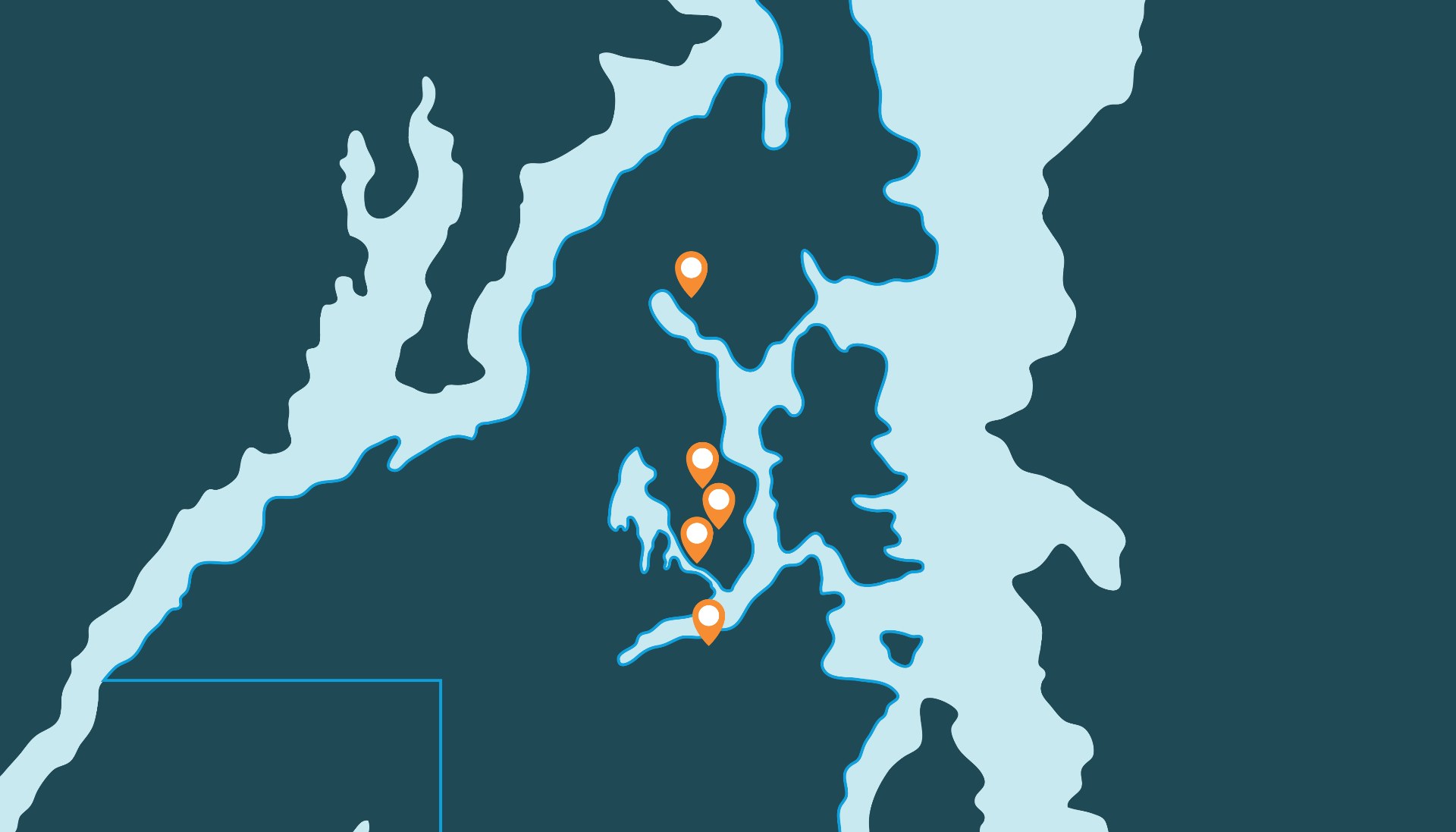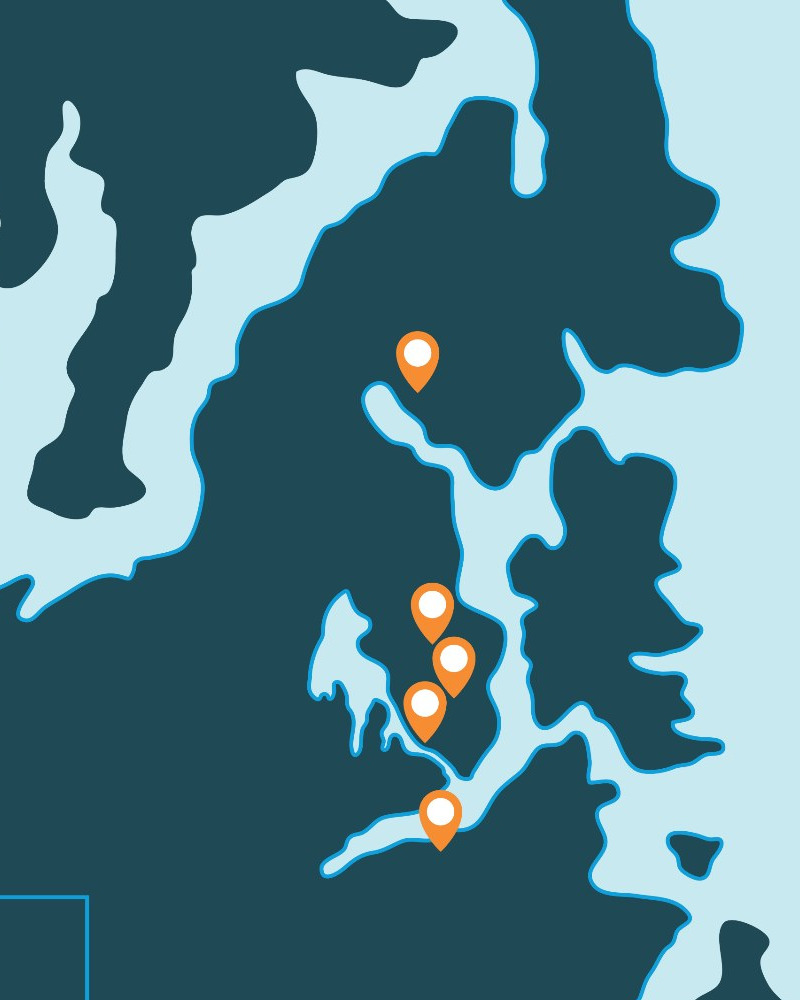Madrona Milestones
Themes of pride, resilience and growth are repeated again and again as the Madrona community gathers to support students whose complex behavioral and mental health needs have kept them from succeeding in traditional classrooms.
As classmates thump on desks and bang a ceremonial drum, the two students move their tokens from the “Belonging” quadrant to “Mastery.”
It’s the next step on a journey that ends when the students are ready to return to their home schools, equipped with coping skills they’ve learned along the way. The average stay at Madrona is 18 months.
Treatment Focus
KMHS began its school program in 2001, providing specialized educational services for students who have exhausted all other options in their public schools.
“We are the last resort for a lot of these young people,” says Director of Child & Family Services Abby Stevenson. “What makes our program unique is that we have specialized staff who provide mental health treatment alongside individualized educational plans.”
For many years, the program served 12 students. It doubled capacity in 2021 by adding a second classroom, and grew to 44 students in 2023 with the opening of a second Bremerton site. It’s still not enough.
“At the beginning of the 2023-24 school year, districts were asking for more seats than we have,” Abby says.
Madrona is the only program of its kind in Kitsap, Jefferson and Clallam counties, and demand continues to increase, reflecting troubling trends in youth mental health that were exacerbated by the pandemic.
“We know the need is very high, and we are evaluating how we can better support these types of intensive education support services over the long term,” says CEO Monica Bernhard.

“It’s about knowing that you’ve got people you can trust.”

School Partnerships
A dozen school districts from Tacoma to Port Townsend now contract with KMHS. The majority of students come from Kitsap County, including the Bremerton School District, a long-time partner that contracts for 12 seats.
Mike McCoy, a school psychologist for the Bremerton School District and former district liaison with Kitsap Mental Health Services, says Madrona plays an important role for area students who need a higher level of support.
“Madrona is a mental health program with a school component and we’re a school that has a mental health component,” he says.
“One of the things that Madrona Day Treatment does for a kid who’s in a chaotic situation is say, `We’re not chaotic here.’”
The program, which maintains a staff-to-student ratio of 2.4 to 1, is modeled on a set of principles designed to re-educate students, helping them feel safe and build confidence. The concepts include: time is an ally, self-control can be taught, and a child should know joy every day.
“It’s about knowing that you’ve got people you can trust,” says Lead Behavior Interventionist Marcus Slater. “It’s about building a community so that you can start working on some of your deficits and building some of your skills.”
The grandmother of a former student says her granddaughter was frequently punished and isolated at her home elementary school, where staff didn’t have the training to address her anxiety, oppositional behavior and attention deficit hyperactivity disorder. At Madrona, the youngster blossomed.
“(My granddaughter) needed to feel loved, cared for and respected, and (Madrona staff) did that,” she says. “They helped her be the amazing child she is today.”









